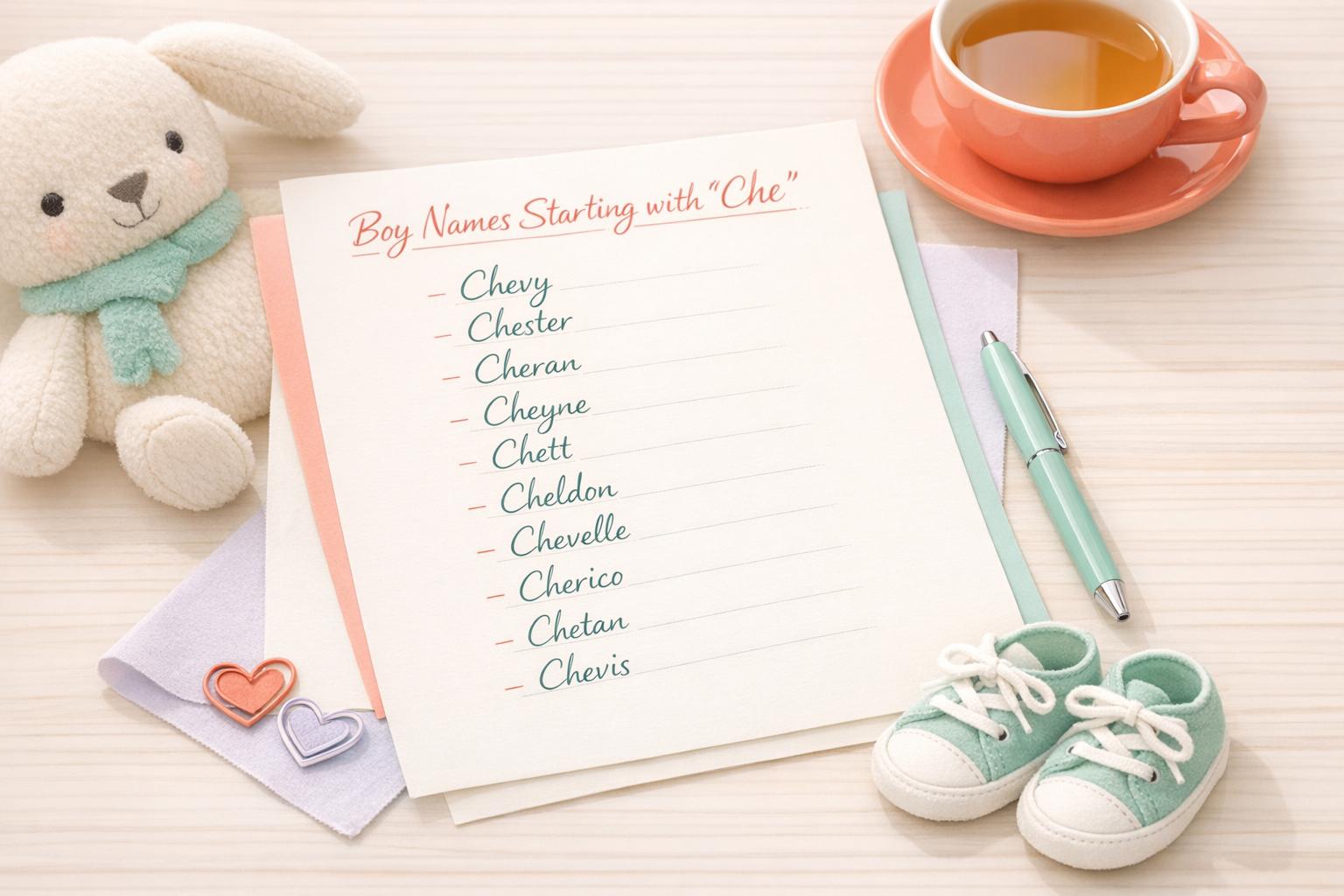Choosing a name for your child is a deeply personal decision, and historical names remain a popular choice for their timeless charm. Names like Alexander, Benjamin, Eleanor, and Clara not only honor the past but also carry stories of influential figures who shaped history.
Here’s a quick look at the top historical names for boys and girls:
Boys:
- Alexander – Defender of men; linked to Alexander Hamilton.
- Benjamin – Son of the right hand; inspired by Benjamin Franklin.
- Theodore – Gift of God; associated with President Theodore Roosevelt.
- Samuel – God has heard; tied to Samuel Adams.
- Henry – House ruler; known for royal legacies like Henry VIII.
Girls:
- Eleanor – Light or shining one; connected to Eleanor Roosevelt.
- Clara – Bright or clear; linked to Clara Barton.
- Harriet – Estate ruler; inspired by Harriet Tubman.
- Florence – Flourishing; tied to Florence Nightingale.
- Abigail – My father’s joy; associated with Abigail Adams.
These names resonate due to their enduring legacy and connection to strength, resilience, and leadership. With tools like NameHatch, modern parents can explore and select meaningful names that blend heritage with contemporary appeal.
Historical Baby Girl Names - Women Who Changed The World | SJ STRUM
Top 10 Historical Names for Boys
These names have stood the test of time, representing centuries of leadership and influence. They carry historical weight and connect your son to a legacy of achievement. Here are five timeless names that have left their mark on history.
1. Alexander
Derived from the Greek name Alexandros, Alexander means "defender of men." It's a name that has consistently stayed among the top 250 in the U.S. since 1900. One of its most notable bearers in American history is Alexander Hamilton. As a Founding Father and the first Secretary of the Treasury, Hamilton was instrumental in shaping the United States' financial system.
2. Benjamin
With roots in Hebrew, Benjamin translates to "son of the right hand", originating from the name Binyamin. Benjamin Franklin is a shining example of this name's legacy. A polymath and one of the most influential figures in American history, Franklin helped draft the Declaration of Independence, secured French support during the Revolutionary War, and played a key role in negotiating the 1783 Treaty of Paris that ended the war.
3. Theodore
Theodore, meaning "gift of God", comes from Greek origins. The name is synonymous with strength and leadership, as demonstrated by Theodore Roosevelt. Serving as the 26th President of the United States, Roosevelt earned the Nobel Peace Prize for his role in mediating the Russo-Japanese War, further cementing the name's association with resilience and diplomacy.
4. Samuel
Samuel has deep Hebrew roots, meaning "God has heard" or "name of God", derived from Shemu'el. Samuel Adams, a key figure in American history, embodied the revolutionary spirit. A member of the Sons of Liberty, Adams likely orchestrated the Boston Tea Party in 1773 and played a pivotal role in opposing British rule. He later signed the Declaration of Independence and served as governor of Massachusetts, making this name a symbol of courage and defiance.
5. Henry
Tracing back to the old German name Heimeric, Henry means "house ruler" and has a long-standing royal legacy. In 2024, it ranked sixth in popularity among boys in the U.S.. The name is famously linked to English kings, including Henry VIII, whose reign reshaped England, and Henry V, celebrated for his military prowess, particularly at the Battle of Shrewsbury. Shakespeare immortalized Henry V’s bravery and leadership in his plays, adding to the name's historical significance.
Top 10 Historical Names for Girls
Just like the names of historical boys often reflect leadership and legacy, these girls' names celebrate women who left an indelible mark on history. These names carry with them the strength, courage, and achievements of remarkable individuals whose stories continue to inspire. Here are five timeless names tied to extraordinary women who shaped the world.
1. Eleanor
Eleanor, derived from Old French and English, means "light" or "shining one." This name is famously linked to Eleanor Roosevelt (1884–1962), a trailblazing First Lady who redefined the role by advocating for human rights. As chair of the United Nations Human Rights Commission, she played a pivotal role in drafting the Universal Declaration of Human Rights, adopted on December 10, 1948. This landmark document became a global benchmark for human rights, influencing constitutions and laws worldwide.
2. Clara
With Latin roots, Clara translates to "bright" or "clear." It is forever associated with Clara Barton (1821–1912), the founder of the American Red Cross. Inspired by the International Red Cross's work during the Franco-Prussian War, Barton established the American Red Cross in 1881. Under her leadership, the organization provided critical aid during disasters like the Johnstown Flood (1889) and the Galveston Hurricane (1900). By 1904, she had built a network of local chapters staffed with trained volunteers, setting the foundation for modern disaster relief in the United States.
3. Harriet
Harriet, meaning "estate ruler", has English origins and was originally a diminutive of Harry. The name gained popularity in English-speaking countries during the 18th and 19th centuries. Harriet Tubman (1822–1913) personified the name's strength through her fearless actions. After escaping slavery in 1849, she became a conductor on the Underground Railroad, making about 19 trips to lead over 300 enslaved individuals to freedom.
4. Florence
Florence comes from Latin and means "flourishing" or "prosperous." This name is most famously tied to Florence Nightingale (1820–1910), the founder of modern nursing. During the Crimean War, she revolutionized care at a British military hospital in Scutari by implementing sanitary reforms. Her efforts in improving hygiene, ventilation, and nutrition reduced the hospital's mortality rate from 42% to just 2% in six months, setting new standards for healthcare.
5. Abigail
Abigail has Hebrew origins, translating to "my father's joy." A name with enduring popularity, it has consistently appeared in the top 1,000 girls' names in the U.S. since the late 1800s. Abigail Adams (1744–1818) was a fierce advocate for women's rights. In a letter dated March 31, 1776, she urged her husband, President John Adams, to "remember the ladies" when drafting the nation's laws, warning that failure to do so might lead women to "foment a rebellion".
sbb-itb-f13f980
Why Historical Names Stay Popular Today
Historical names have a timeless charm that keeps them relevant across generations. They offer a direct link to the past, blending tradition with modern sensibilities in a way that resonates with today’s parents.
One key factor behind their enduring appeal is the cyclical nature of naming trends. Names often fade from popularity for decades before making a strong comeback, typically following a 100-year revival pattern. This explains why names like "Hazel", "Charlotte", "Henry", and "Arthur" are once again gracing birth certificates.
For many parents, historical names strike the perfect balance between uniqueness and familiarity. These names carry rich backstories, often tied to influential figures - leaders, artists, innovators, and activists - who have left their mark on history. They feel distinctive in a modern classroom yet remain easy to pronounce and spell, making them both special and practical.
In today’s diverse naming landscape, standing out is increasingly important. Statistics show that less than eight percent of newborns are given names from the top 10 most popular lists. This trend reflects a desire among parents to choose names that are meaningful and uncommon, yet still accessible.
The internet has also broadened horizons, giving parents access to historical names from various cultures and eras. Family heritage and tradition play a significant role, with many parents reviving older family names or selecting ones that align with their personal values and interests.
Historical names are often associated with timeless qualities like strength, wisdom, and resilience - traits that never lose their appeal. Current trends show a resurgence of Victorian and Edwardian names, along with a growing preference for using traditional nicknames as official first names. This versatility adds to their modern-day relevance.
These names effortlessly bridge the gap between history and contemporary life, offering children a meaningful connection to their heritage while fitting seamlessly into today’s world.
How NameHatch Can Help You Choose the Perfect Historical Name

Picking a historical name can be tricky, especially when preferences don’t always align. That’s where NameHatch steps in. This AI-powered platform makes it easier for couples to explore and agree on historically inspired names.
Smart Filters for Historical Themes
NameHatch’s smart filters allow you to narrow your search based on specific historical themes.
- The Classic filter highlights names with strong historical significance.
- The Global premium filter uncovers historic names from different regions and time periods.
- For those drawn to unique eras, the Unique filter introduces lesser-known names with captivating histories.
These filters make it simple to focus on names that align with your historical interests.
Partner Matching and Collaboration
NameHatch also makes collaboration easy. Both partners can explore historical names independently, and the platform notifies you when your favorites overlap. This swipe-based system reduces the need for lengthy discussions and helps you focus on the meaning and heritage behind each name.
Conclusion: Honoring the Past While Looking Forward
Historical names carry a legacy that transcends time - a rich charm that ties your child to generations of meaning, tradition, and heritage. These names have stood the test of time, staying relevant through shifting trends and appealing to modern parents. Names like Hazel, Charlotte, Henry, and Arthur are enjoying a revival, striking a balance between being classic and refreshingly rare.
"Old-fashioned names are making a comeback, with many classic names regaining popularity due to cultural influences and celebrity choices." – Emma Bennett, Emma's Diary
But these names are more than just aesthetically pleasing. They hold deep personal value, often serving as a bridge to family stories and values, reinforcing a sense of belonging that can be passed down through generations.
The enduring charm of historical names lies in their ability to respect the past while staying relevant for the future. Unlike trendy names that might lose their appeal over time, names like Eleanor, Alexander, and Benjamin remain timeless and sophisticated.
For parents navigating the naming process, NameHatch offers a modern solution. With tools like smart filters, AI-powered suggestions, and partner-matching features, NameHatch makes it easier to find historically inspired names that resonate with both tradition and contemporary practicality.
Choosing a historical name is more than just picking a label - it’s about giving your child a meaningful connection to their roots and a name that carries significance well into the future.
FAQs
Why are traditional historical names becoming popular with modern parents?
Historical names are becoming increasingly popular among today's parents, offering a blend of classic charm and a link to the past. These names often carry a deep sense of history and tradition, resonating with families who value their cultural roots or want to honor longstanding family customs.
Unlike fleeting trends, historical names have a way of standing the test of time. They strike a balance between being recognizable and distinctive, evoking a sense of nostalgia while remaining elegant and timeless. This growing trend highlights a shift toward choosing names with meaningful stories and historical depth rather than opting for modern or unconventional alternatives.
How can NameHatch help parents choose a timeless historical name for their baby?
NameHatch makes choosing the perfect historical baby name easier than ever. Using AI-driven suggestions, it tailors recommendations to your preferences. With tools like intelligent filters and real-time partner collaboration, you can explore timeless, meaningful names and work seamlessly with your partner to find the ideal fit.
What makes historical names a great choice for children today?
Choosing a historical name for your child can be a deeply meaningful choice. These names often tie into rich heritage and history, giving your child a connection to their roots and a sense of belonging. Many of these names are linked to qualities admired through the ages - like bravery, intelligence, or resilience - offering inspiration for your child as they grow.
What’s more, historical names have a timeless charm that sets them apart from fleeting naming trends. They strike the perfect balance between honoring tradition and embracing individuality, making them a standout choice in today’s world.



